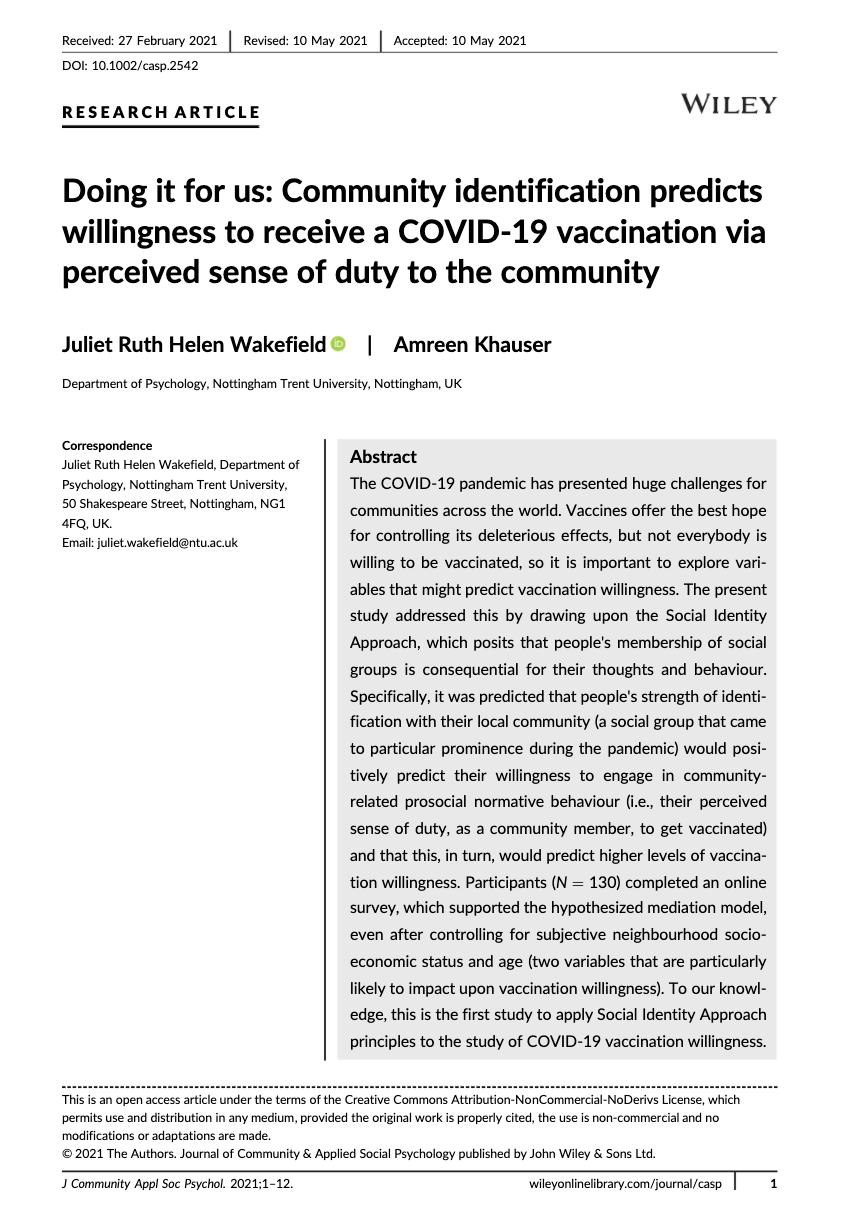Doing it for us: Community identification predicts willingness to receive a COVID-19 vaccination via perceived sense of duty to the community
Description
The COVID-19 pandemic has presented huge challenges for communities across the world. Vaccines offer the best hope for controlling its deleterious effects, but not everybody is willing to be vaccinated, so it is important to explore variables that might predict vaccination willingness. The present study addressed this by drawing upon the Social Identity Approach, which posits that people’s membership of social groups is consequential for their thoughts and behaviour. Specifically, it was predicted that people’s strength of identification with their local community (a social group that came to particular prominence during the pandemic) would positively predict their willingness to engage in community-related prosocial normative behaviour (i.e., their perceived sense of duty, as a community member, to get vaccinated) and that this, in turn, would predict higher levels of vaccination willingness. Participants (N = 130) completed an online survey, which supported the hypothesized mediation model, even after controlling for subjective neighbourhood socio-economic status and age (two variables that are particularly likely to impact upon vaccination willingness). To our knowledge, this is the first study to apply Social Identity Approach principles to the study of COVID-19 vaccination willingness. The implications of the findings for governments’ efforts to boost vaccine uptake are discussed.
Additional languages

DETAILS
Publication
Authors
Emergency
Language
Region
Keywords

